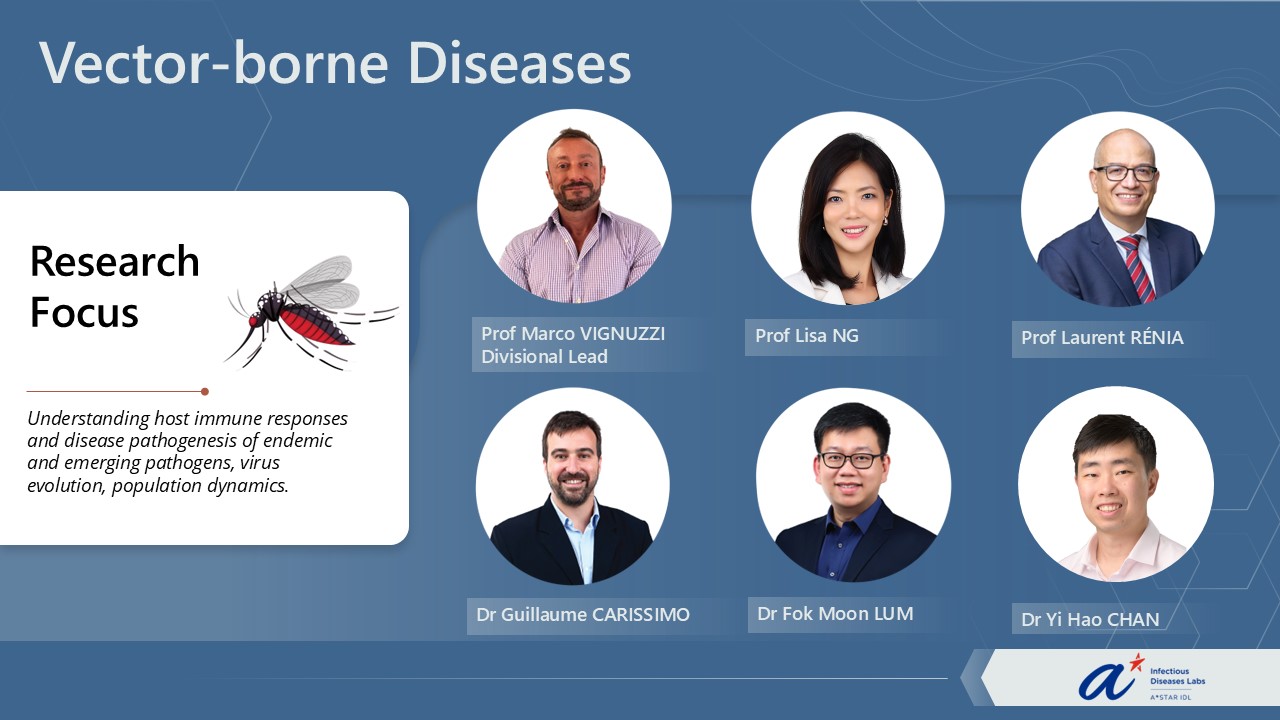Vector Borne Diseases

Zoonotic diseases, which spread from animals to humans, make up 75% of newly emerging infectious diseases and over 60% of all infectious diseases1. This transmission between animals and humans can occur either by direct contact with an infected animal or by transmission between hosts through a vector. Vector-borne diseases (VBDs), primarily transmitted by mosquitoes, make up more than 17% of all infectious diseases2. These infections are especially common in tropical regions and pose ongoing global health challenges. Malaria remains a major concern, particularly with the emergence of zoonotic strains such as Plasmodium knowlesi, which pose a rising threat to countries like Singapore due to its role as a major transit hub. Arboviruses such as dengue, Zika, and chikungunya have also resurged in recent decades, driven by climate change, rapid urbanisation, and increased global mobility.
The VBD domain at A*STAR IDL addresses these threats through a multidisciplinary approach that explores the evolution of arboviruses, host-pathogen interactions, and mechanisms of disease. Its goal is to support the development of novel diagnostics, vaccines, and therapeutics. Led by senior investigators Professors Marco Vignuzzi, Lisa Ng, and Laurent Renia, and supported by Drs Guillaume Carissimo, Fok-Moon Lum, and Yi-Hao Chan, the team combines expertise in virology, immunity, and host genetics. Their work will advance understanding of vector-borne infections and establish A*STAR IDL as a centre of excellence in the field.
A*STAR celebrates International Women's Day

From groundbreaking discoveries to cutting-edge research, our researchers are empowering the next generation of female science, technology, engineering and mathematics (STEM) leaders.
Get inspired by our #WomeninSTEM
.png?sfvrsn=b11c2136_5)